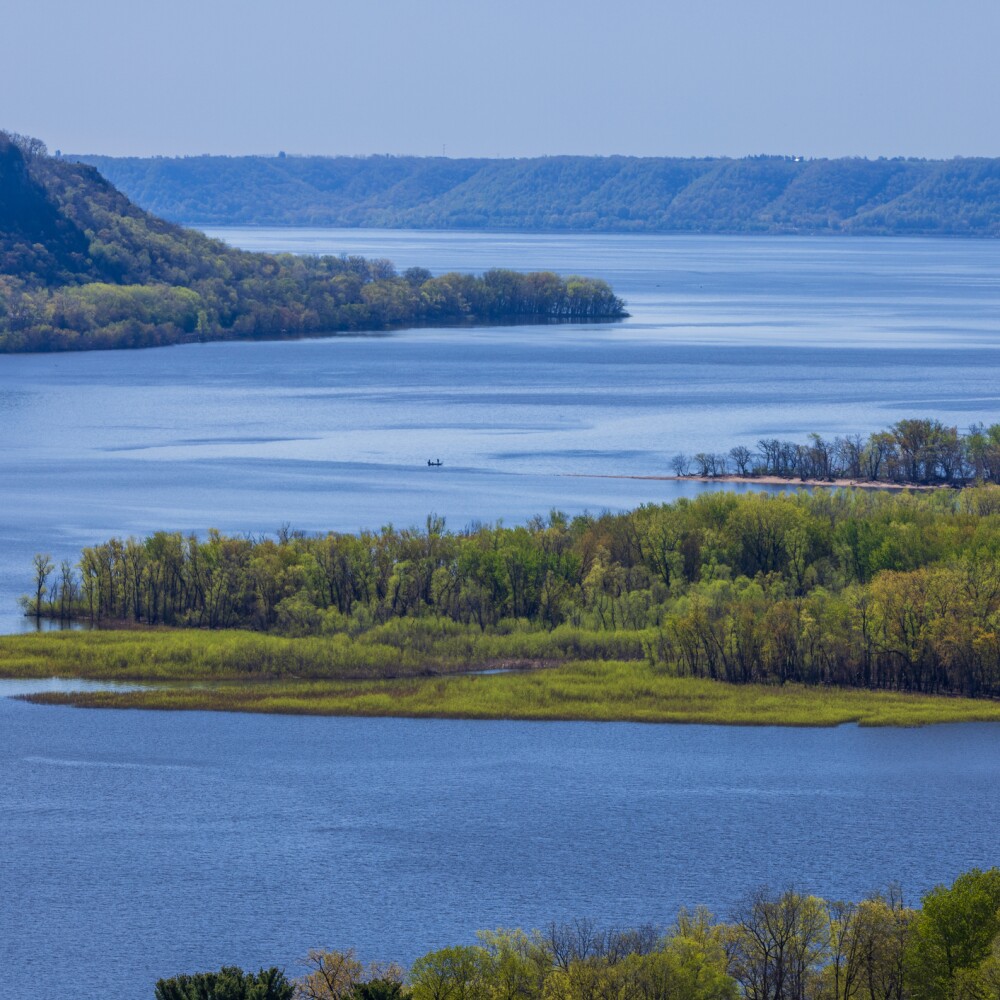Knowledge Center
We are always learning. These reports and studies help inform our grantmaking.
-
December 23, 2025Oceans are a source of food security for billions of people and a cornerstone of resilience in the face of climate change. Yet the flow of capital into ocean-positive solutions has been limited. This has left a gap between philanthropy and impact investment, slowing the pace of change.
-
November 13, 2025This survey, conducted by Morning Consult for the Walton Family Foundation, reveals strong public support for natural solutions—such as wetland restoration and reforestation—as effective tools to address climate change and protect communities.
-
June 27, 2025This report outlines the potential water-related risks to the supply chains in the information and communication technology sector. It then presents opportunities for water stewardship to address these risks.
-
A Practical Guide to Economic Frontiers for Evaluating Benefits of Multispecies Fisheries ManagementA Practical Guide to Economic Frontiers for Evaluating Benefits of Multispecies Fisheries ManagementJune 27, 2025This article describes an analysis showing the multispecies management of fisheries is more efficient than single-species management.
-
June 27, 2025This report from the National Wildlife Federation and Sand County Foundation identifies barriers and opportunities to increase natural infrastructure to improve water quality and quantity on agricultural lands. The recommendations to address these are: addressing cultural norms, building local staffing capacity for conservation, and making it easier for farmers to take action.
-
June 23, 2025A Morning Consult poll for the Walton Family Foundation finds that the vast majority of Arizonans are concerned about future groundwater and Colorado River water supplies. They support dedicated funding for resilience and conservation projects. More than 91% are concerned about the Colorado River’s ability to continue providing needed water supplies to Arizona, the survey found.
-
June 5, 2025Illegal, unreported, and unregulated (IUU) fishing poses a significant threat to global fish stocks, marine ecosystems, and the economic well-being of communities dependent on fishing. This research study by itad examined how import control rules can influence IUU fishing, the support support they need to be effective and any unintended consequences they may have. Specifically, it examined import control rules in the European Union's IUU Regulation, the United States' Seafood Import Monitoring Program and Japan's Domestic Trade of Specific Marine Animals and Plants Act.
-
May 1, 2025Discussions about sustainable food systems have historically been biased towards agriculture. Wild caught fish are relatively undervalued. This means fisheries receive less attention in policy discussions and less investment to support the adoption of sustainable management approaches than terrestrial agriculture.
-
January 28, 2025Generation Z is coming of age at a time when the effects of climate change, including rising temperatures, are increasingly widespread. As these young people grow into adulthood, their views of climate change will shape the nation’s response to climate-related challenges. The Walton Family Foundation and Gallup partnered to better understand how these young people experience climate change, their worries about climate effects and their views of their generation’s future.
-
May 16, 2024A poll conducted by Morning Consult on behalf of the Walton Family Foundation shows almost 9 in 10 Arizona voters (88%) are concerned about groundwater supplies in the state and believe that limiting unregulated groundwater pumping should be a priority for the state.
-
April 30, 2024Sixty percent of Americans say that the impacts of climate change are being experienced now, and 16% say the impacts will be felt in the future, according to a new Morning Consult poll.
-
March 20, 2024A Morning Consult poll for the Walton Family Foundation found nearly universal support for protecting the health and safety of drinking water and the water in our nation’s lakes, streams, and rivers.
-
December 13, 2023Maintaining a healthy Colorado River is essential to ensuring clean and reliable water supplies in the West and protecting critical ecosystems. But for decades, we have taken more water from the river than it can afford to give. This report outlines examples of nature-based solutions and conservation projects that can help us better anticipate, prepare for, and respond to climate change impacts.
-
November 21, 2023Restore the Mississippi River Delta (MRD) has been conducting public opinion research among Louisiana voters since 2013 and media research about coastal issues since 2016.
-
November 8, 2023Climate Advisers sought to understand the extent to which key coastal countries appreciate the importance of fisheries for adaptation and mitigation. This report presents the results of that analysis.
-
April 24, 2023Morning Consult ran a survey, on behalf of the Walton Family Foundation, focusing on the importance of safeguarding groundwater supplies and support for investments in conservation and restoration projects to protect water sources for Arizona.
-
April 21, 2023Morning Consult ran a survey, on behalf of the Walton Family Foundation, focusing on how voters are consuming news on climate change, how the news on climate change is making them feel, and what their preferences are for stories around climate change. The survey finds that voters agree journalists have a duty to increase global understanding of climate change and that nearly all voters want more coverage on protecting water sources, extreme weather, and climate change’s impact on food supplies.
-
April 17, 2023The Walton Family Foundation collaborated with Impact Institute to gain actionable information for decision-making and strategy development required to support and preserve fishery communities. The project has consisted of performing two value chain assessments on selected fish supply chains. This report focuses on the blue swimming crab from Indonesia.


















